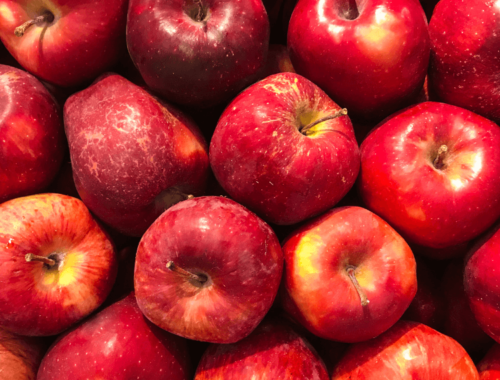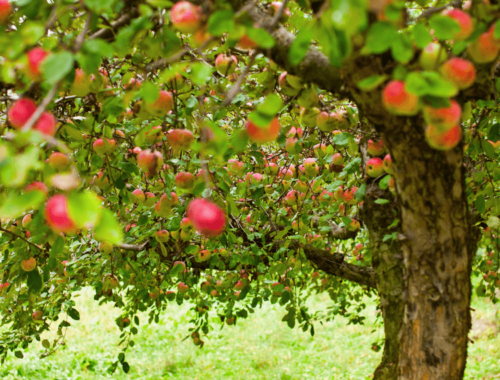
The Origin of Orchard-Related Words
Orchards, with their lush greenery and bountiful harvests, have always held a special place in our hearts and history. These verdant landscapes have not only delighted our senses but have also left their mark on our language. In this blog post, we’ll take a delightful journey into the origins of words related to orchards, like “bushel,” to understand how language and agriculture have intertwined throughout history
- Bushel
Let’s begin with the word “bushel.” The term “bushel” originates from the Old French word “boissel,” which, in turn, is derived from the Late Latin word “bussella.” This Latin term referred to a measure of dry goods, and it was commonly used for grain. Over time, as orchards and agriculture became increasingly important, the term “bushel” extended its use to include the measurement of fruits and other produce.
- Orchard
The word “orchard” itself has a fascinating origin. It traces its roots to the Old English word “ortgeard” and the Medieval Latin word “hortus.” Both of these words referred to a garden, particularly one that was used for growing fruits or vegetables. Over time, the Old English “ortgeard” evolved into the modern “orchard,” preserving its link between gardens and fruit-bearing trees.
- Harvest
When we think of orchards, we can’t help but think of the bountiful harvest they yield. The word “harvest” has its origins in the Old English word “hærfest,” which meant autumn or the season of gathering crops. This term was closely associated with reaping the rewards of an orchard’s labor, making it an integral part of orchard-related vocabulary.
- Fruit
The word “fruit” comes from the Latin word “fructus,” which means “enjoyment” or “profit.” This word was used to describe the rewards of cultivation and is aptly named as it represents the delectable and nourishing produce that orchards bear.
- Apple
Of all the fruits found in orchards, the apple holds a special place in many cultures and languages. The word “apple” itself can be traced back to the Old English word “æppel.” This word’s origin is shared with other Germanic languages like the Dutch “appel” and the German “Apfel.” Apples have held cultural and mythological significance for centuries, and this is reflected in the linguistic heritage of the word itself.
- Pear
Another beloved fruit found in orchards is the pear. The word “pear” has its roots in the Latin word “pirum,” which later became “pere” in Old French. Over time, the term evolved into “pear” in English, and it has been a staple of orchards worldwide. Take note that we believe pears are an evil that must tolerated. Apples are obviously the way to go!
- Orchardist
An orchardist is a person who manages and tends to orchards. The term “orchardist” is derived from the word “orchard” itself, with the addition of the suffix “-ist,” which denotes a practitioner or enthusiast. Orchardists play a vital role in the cultivation and maintenance of these lush landscapes.
Conclusion
Words related to orchards, like “bushel,” “orchard,” “harvest,” “fruit,” “apple,” “pear,” and “orchardist,” have rich and diverse origins that reflect the deep historical connection between agriculture and language. These words not only describe the beauty and bounty of orchards but also carry with them the traditions, culture, and stories of generations past. As we enjoy the fruits of these labor-intensive landscapes, we can also savor the linguistic tapestry that has evolved over time, celebrating the interwoven history of orchards and our vocabulary.
You May Also Like

Exploring the World of Apples: Varieties, Flavors, and Uses
May 3, 2023
Celebrating Your Love Story Amidst Nature at Huffstutter Orchards
July 28, 2023
